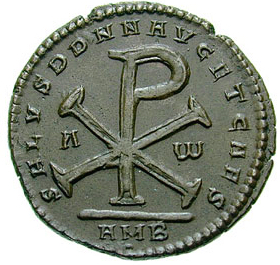(((Michelle Boorstein))) right out of the box whips out her pilpul, here:
Their marriages, confessions, promises of salvation — all of these things ceased to exist for thousands of Catholics baptized by an Arizona priest who, it turns out, was saying the sacrament script wrong. ... diocesan officials ... said last month that people who Arango baptized aren’t technically Catholic. That means they weren’t eligible, from a Catholic point of view, for other sacraments.
Except the diocese didn't actually say so:
According to the Diocese of Phoenix, Arango remains in "good standing" as a priest and "has not disqualified himself from his vocation and ministry." As of right now, other sacraments performed by Arango are considered valid, the diocese said.
More.
Still, ex opere operato is having a bad week.
The diocese is obviously confused because the bishop is. He evidently doesn't understand that doctrine. Though defending the "other sacraments performed" by the errant priest, the bishop nevertheless has said, "You will need to be baptized."
St. Augustine would have disagreed.
The bishop of Hippo in North Africa taught the church in the Donatist Controversy that the validity of sacraments doesn't depend on the character of the priest, or on his theology. The sacraments work by themselves as long as they are reasonably Christian and the individuals come under the jurisdiction of the Catholic church.
All the attention here is misplaced on the personal pronouns used, "I baptize you" vs. "We baptize you", in keeping with the spirit of the current age, when the triune formula "in the name of the Father and of the Son and of the Holy Ghost" plus the corporate idea is the important thing according to Augustine. Arguably "We baptize you" emphasizes the latter, in good Augustinian manner.
Augustine's principles are charitable and Pauline. The bishops could learn from them.
Some indeed preach Christ from envy and rivalry, but others from good will. The latter do it out of love, knowing that I am put here for the defense of the gospel; the former proclaim Christ out of partisanship, not sincerely but thinking to afflict me in my imprisonment. What then? Only that in every way, whether in pretense or in truth, Christ is proclaimed; and in that I rejoice.
-- Philippians 1:15ff.




